- Home
- Upton Sinclair
Wide Is the Gate (The Lanny Budd Novels)
Wide Is the Gate (The Lanny Budd Novels) Read online
EARLY BIRD BOOKS
FRESH EBOOK DEALS, DELIVERED DAILY
BE THE FIRST TO KNOW—
NEW DEALS HATCH EVERY DAY!
Wide Is the Gate
A Lanny Budd Novel
Upton Sinclair
TO
MY MILLIONS OF FRIENDS
IN THE SOVIET UNION, WHO,
WHILE THIS BOOK WAS BEING WRITTEN,
HAVE BEEN DEFENDING
OUR COMMON CAUSE.
“Wide is the gate, and broad is the way, that leadeth to destruction.”
BOOK ONE
Into the Lion’s Mouth
1
DUST TO DUST
I
Freddi himself wouldn’t have wanted an elaborate funeral or any fuss made over his broken body; but funerals are not for the dead, only for the living. Here was his devoted Jewish mother, aged not so much in years as in feelings, and a prey to terror as well as grief. The calamities which had fallen upon her family and her race could not be blind accidents, they must have a cause; somebody must have done something, and what could it be save that her people had again departed from the ways of their faith and incurred the wrath of that most jealous of Gods, who visits the iniquity of the fathers upon the children unto the third and fourth generations of them that hate Him? It was Jahweh, Lord God of Sabaoth, it was El Shaddai, the Terrible One, thundering as He had done all down the centuries. Know therefore and see that it is an evil thing and bitter, that thou hast forsaken the Lord thy God, and that My fear is not in thee, saith the Lord of Hosts.
The Lord God of Hosts had given to Leah Robin, formerly Rabinowich, a husband and two tall sons, and to them two lovely wives, and to one of these a son; all blessings beyond price. But husband and sons and daughters-in-law all five had dared to treat with contumely the Law and the Prophets, to call themselves “modern” and to prate about “Reform,” presuming to decide for themselves what was good and proper, regardless of all those commands which the Lord God of Israel had laid down in His holy books. The mother, though anxious in soul, had permitted herself to be dragged along; trying to keep her family about her and to avoid dissension, she had seen one ancient custom after another dropped and forgotten in her home.
El Shaddai the Implacable had waited, for such is His way. The Lord is slow to anger, and great in power, and will not at all acquit the wicked: the Lord hath His way in the whirlwind and in the storm, and the clouds are the dust of His feet. He rebuketh the sea, and maketh it dry, and drieth up all the rivers.… The mountains quake at Him, and the hills melt, and the earth is burned at His presence, yea, the world, and all that dwell therein. Who can stand before His indignation? and who can abide in the fierceness of His anger? His fury is poured out like fire, and the rocks are thrown down by Him.
Beyond anything which had confounded Job were the calamities which had fallen upon this happiest of Jewish families. The dreadful Nazis seizing first the father and then the younger son and throwing them into prison; robbing the family of everything in the world, torturing the son in unspeakable ways and finally throwing him out of their land a piteous wreck. A mother who had been taught from earliest childhood that the fear of the Lord is the beginning of wisdom could draw only one conclusion from such a chain of events; Jahweh was behaving according to His nature: the Lord God Omnipotent, who had cast out Adam and Eve and pronounced His terrible dooms, that in sorrow shalt thou bring forth children, and cursed is the ground for thy sake!
The inheritor of these dooms was now fleeing back to the ark of her covenant. Her son had been a poor strayed sheep, a “pink” sheep, tinged with Marxist hues, and it was too late to help him in this life, but at least she could prepare him for that resurrection to which the Orthodox look forward. He must be buried according to sacred tradition, with no concession to those fatal delusions known as “Reform.” The stricken household was in a panic; and the estate upon which they lived was thrown into turmoil; for the mother believed that a Jewish corpse was dishonored if it was left above ground more than twenty-four hours, and it might not be buried after dark.
II
Rahel Robin, the young widow, had tended and watched over her husband for a couple of months; she had heard him pleading for death and had made up her mind that that was the way of mercy for him. She had no idea whatever that this so cruelly tortured body would ever rise from the grave, whether in its present distorted shape or restored to its original perfection. But there was no restraining the hysteria of the older woman. Mama wept and wrung her hands and tore her garments; at the same time she rushed hither and thither, trying to perform those offices which decency requires for Jewish dead.
There were many of her race on the French Riviera, but they were for the most part rootless persons, parasites and pleasure-seekers, as much tainted with skepticism and exposed to the wrath of Jahweh as the Robin family. Who among the devotees of fashion would understand how the fingernails of a dead person have to be trimmed? Who among bridge-playing ladies would know how to prepare a “meal of condolence”? Who among tennis-playing gentlemen would see to it that the mourners returning to the home washed their hands and forearms in accordance with the Talmudic formula?
There was a synagogue in Cannes, but Mama would have none of it; it was “Reformed,” and the rabbi was so fashionable that he might as well have been an Episcopalian. But in the Old Town of the city there lived in direst poverty a few families from Russia and Poland, earning their bread by such labor as peddling, collecting rags, patching old clothes. They were real Jews, as Leah had once been; they had a sort of hole in the wall where they worshiped, and Leah had gone among them doing charity and had met the head of their synagogue. His name was Shlomo Kolodny, and he was no French rabbi of the Coast of Pleasure, wearing a big black armband at funerals, but a real scholar, a melamed, or teacher of the young; also he was the cantor, and the shammas, or sexton, and the shohet, or ritual butcher; in case of need he would be the undertaker according to the ancient code. After laborious days he spent his nights poring over sacred Hebrew texts and disputing in his imagination with learned ones whom he had known in Poland, concerning thousands of minute points of doctrine and practice which had been raised during twenty-five centuries of dealings between Jahweh and His Chosen People.
So now the chauffeur of Bienvenu drove in haste to the city and came back with this Shlomo of all trades, wearing a long black beard and a badly stained Prince Albert which he probably thought looked like an old-style caftan. In a Yiddish slightly mixed with French he assured the bereaved mother that he knew everything and would do it in style, and no “Reform” tricks whatever—“Pas de tout, Frau Robin, niemals, niemals will I drain the blood from a good Jew or put any poisons into him.” He rubbed his hands together and purred, for he knew all about this lady whose husband had been one of the richest men in Germany and who was still important enough to be a guest on one of the finest estates of the Cap d’Antibes.
A great consolation he was to Mama. He hastened to assure her that she need not worry because her dear one was buried so far from home; if she so desired, a little forked stick could be put in the grave, wherewith he could dig his way to Palestine when the last trumpet blew; and of course the screws in the coffin lid would be left loose for him. As for the mutilations which evil men had done upon his body, they would all be repaired, and a noble young Jew would arise, transformed into an angel shining like a star. His broken fingers would be mended and he could play his clarinet for the greater glory of the Most High. Meanwhile his soul was comfortable in a sort of dove-cot in Hades, with an immense number of tiny compartments for the containing of righteous souls. This wasn’t exactly accepted doctr
ine, but Shlomo had read it in some ancient text and Mama found it most comforting.
There are some of the old ways which are utterly impossible in modern days. The cemetery was up in the hills, and while city people have not forgotten how to walk, they have forgotten that it is possible to do so. The coffin and the mourners would have to be transported in automobiles, but the men would ride in separate cars, followed by the women, and when they came to the gates of the cemetery everybody would enter on foot. Tactfully the melamed mentioned that in his flock were a number of poor women who would make excellent mourners; they would expect to be paid only a few francs each, plus a meal, and they would weep copiously and make a truly impressive funeral. It was too much to expect that all the Jews of Cannes or even of the village of Juan-les-Pins would stop work and follow the cortege; alas, they wouldn’t even know that if they met it on the street they were in duty bound to turn and accompany it a distance of at least four cubits. Who could even tell them how much a cubit was?
There was the question of the hesped, the funeral eulogy. Shlomo was competent to pronounce it, but he had never met the deceased, and somebody would have to tell him what to say. At this point the young widow dried her tears and broke into the discussion. The person who should deliver the oration was the dead man’s dearest friend, the one who knew him best and had risked his life to get him out of Naziland. This friend was in Paris, and Rahel had telephoned to him; he had promised to hire a plane and arrive in Cannes before the day was over. Surely Mama must know that it would be Freddi’s wish to have the wonderful Lanny Budd speak the last words over his grave.
This was embarrassing to the master of ceremonies. To be sure, there was nothing in the Torah to forbid a goy to speak at a funeral; but it would seem very “modern,” and would trouble the Orthodox, into whose hands the mother wished to entrust her son’s fate. Nevertheless, Rahel insisted: not merely would it be Freddi’s wish, but also that of his father and his elder brother. They, alas, were in South America, and there was no way to consult them; but Rahel knew their minds, and Mama knew that they looked with disfavor upon her most cherished ideas. So there would have to be two orations; Shlomo would speak the proper conventional words and then dear kind Lanny Budd would say whatever came from his heart. Everyone who attended the funeral, Jew or Gentile, would know how much the two young men had meant to each other, how many clarinet and piano duets they had played, and for how many months Lanny had labored to get his friend out of the clutches of Adolf Hitler and Hermann Wilhelm Goring.
III
It was a mild day in early October, and Lanny’s plane should arrive in time. The hour for the ceremonies was set as late as possible, and the bereaved women summoned friends by telephone. By various means word was spread among all Jews, rich and poor, who might be willing to attend; for it is necessary to the honor of the deceased that there shall be a procession, accompanied by convincing demonstrations of grief.
Rahel took a step which came near to spoiling the occasion for her mother-in-law; she sent a message to a Spanish Socialist who was employed in Cannes and who ran the workers’ school which Freddi and Lanny had helped to finance. Yes, indeed, Raoul Palma would attend the funeral, and many of the comrades would find ways to leave their work and pay the last tribute to a brave and loyal soul. The funeral ought to have been delayed for several days so as to give the anti-Fascists of the Midi an opportunity to make a demonstration of it. But since Moses hadn’t known about refrigerants and formaldehyde, the comrades would do their best at short notice and later would hold a memorial meeting with music and Red speeches.
Toward the middle of the afternoon the motor-cars began to assemble in the driveway which circled the pink stucco villa of Bienvenu. Some parked their cars and waited decorously outside the gates, ready to take their places in the procession, and not realizing how this would mix things up. It was hard for modern people to understand that the men must precede the hearse and women follow it. Such has been the fate of the most holy customs in these evil days—people don’t even know that they exist!
Six pallbearers carried the plain wooden coffin to the hearse and then took their places in a car preceding it. In front went the car with the melamed and the little five-year-old son of the deceased. His mother would have preferred to spare him this ordeal, but the grandmother insisted that duty required him to become familiar with grief, and on the way the melamed would teach him the words of a Hebrew prayer which would be helpful to his father’s soul.
Next rode the men friends, taking with them various Jewish males who were too poor to have cars of their own. Behind the hearse rode the mother and the widow, heavily veiled; no one would see their faces or that of Freddi, which had been distorted by pain beyond power of an undertaker’s art. Next rode the women friends of the family, these also taking a few poor women, to symbolize the fact that in the eyes of Jahweh all are the same; all are commanded to appear before Him in white grave-clothes of the same humble and unpretentious cut.
Slowly the cortege proceeded into the city of Cannes, and everywhere, according to the French custom, passers-by stopped and the men bared their heads respectfully. But apparently not one of them knew that he should walk four cubits, a distance of six feet, with the procession. It went by appointment to the school, where quite a company had assembled; at least fifty men and women, but they had no idea that the sexes should be separated. They were working people, with a few intellectuals; some were black-clad and others had armbands of crape; several carried wreaths, again being ignorant of ancient Jewish prejudices. They stood respectfully until the last car had passed, and then they fell in behind, carrying a red banner having two clasped hands and the initials E.T.M., Ecole des Travailleurs du Midi.
IV
So into the beautiful hills which line the Cote d’Azur. When they came to the gates of the cemetery the cortege stopped, and the pallbearers bore the coffin to the grave. Three wealthy and fashionable friends of the family did not enter the cemetery grounds, but watched the procedure from outside, reading the prayers which they could not hear. The reason was that they belonged to the tribe of the priests, the Cohanim, who are not permitted to enter a burial ground, a place contaminated and perhaps a haunt of evil spirits.
Frequently the pallbearers stopped and set down their burden; this was not because they were weary, but because it was a part of the ritual. As they walked, the melamed recited the Ninety-First Psalm, full of assurances to those who put their trust in the Most High. Surely He shall deliver thee from the snare of the fowler, and from the noisome pestilence. He shall cover thee with His feathers and under His wings shalt thou trust: His truth shall be thy shield and buckler. Thou shalt not be afraid for the terror by night; nor for the arrow that flieth by day; nor for the pestilence that walketh in darkness; nor for the destruction that wasteth at noonday. A thousand shall fall at thy side, and ten thousand at thy right hand; but it shall not come nigh thee. So spoke the psalmist; he mentioned plagues and stones and lions and adders and dragons—but nothing about Nazis!
Several times male friends came forward at the pauses and replaced the pallbearers, for this is a way to do honor to the deceased. Lanny Budd had arrived at the cemetery in a taxicab and waited at the gates; when a friend of the family explained the custom in a whisper, Lanny stepped up and did his share. He had known the Robin family for twenty years, and had heard poor Mama wailing over her darling’s dreadful fate. He would have done whatever she wished, even if it had included the most ancient custom of having the pallbearers walk barefoot, lest they should stumble over the latchets of their sandals.
The bier arrived at the grave, and the rabbi recited the Zidduk ha-Din, a Hebrew prayer; very few knew what it meant, but it had fine rolling sounds. When the coffin had been lowered to its appointed place the Orthodox ones came forward, plucking bits of grass-roots and earth from the ground and throwing them upon the coffin as a symbol of the resurrection. They said a Hebrew formula which means: “And they of the city shall fl
ourish like the grass of the earth.” Some of the Gentiles threw flowers, and had to be excused because they didn’t understand the proprieties. The Jewish people wept loudly, because it was good form and also because they felt themselves at one with the bereaved women, exiles in a strange land and heirs of the man of Uz. When the dark-eyed, pale little son of the dead man stepped forward and with tears on his cheeks recited the Kaddish, part Hebrew and part Aramaic, there were few dry eyes in the assembly.
Shlomo Kolodny delivered his hesped. He said about the son of Johannes Robin the same things he had said about a thousand other Jewish men in the course of his long service. He laid stress upon the young man’s piety, a virtue in which Freddi had been lacking—unless you chose to give a modernized meaning to the word. He laid stress upon Freddi’s dutifulness to his parents and to his wife and child—virtues especially commanded by Jewish law. The melamed said another rolling Hebrew prayer, and then it was the turn of a young Gentile to speak for the Socialist portion of this oddly assorted procession.
V
Lanny Budd at this time was thirty-four but looked much younger. He had pleasant and frank American features and well-tanned and well-nourished skin; he wore a neatly trimmed little brown mustache, and a brown tropical worsted suit of a fashionable cut. He had no claim to being an orator, but had talked to the workers at the school and to other groups and didn’t mind doing it when he had something to say. He understood clearly that funerals are for the living, and now his words were for Mama and Rahel and a few others who had really known the deceased; also for those workers for whom Freddi had often played music at the school.

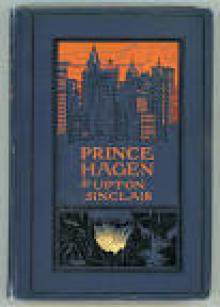 Prince Hagen
Prince Hagen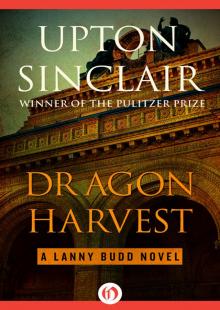 Dragon Harvest
Dragon Harvest The Jungle
The Jungle Sylvia's Marriage
Sylvia's Marriage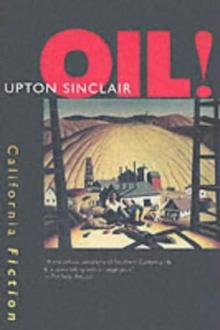 Oil! A Novel by Upton Sinclair
Oil! A Novel by Upton Sinclair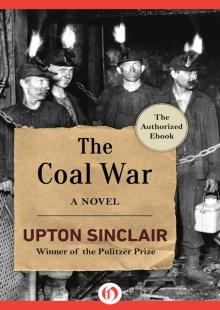 The Coal War: A Novel
The Coal War: A Novel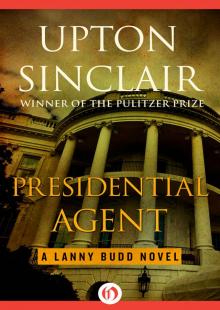 Presidential Agent
Presidential Agent World's End
World's End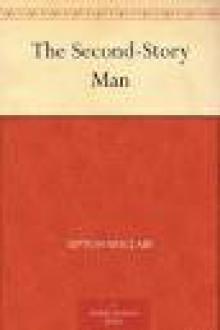 The Second-Story Man
The Second-Story Man O Shepherd, Speak!
O Shepherd, Speak!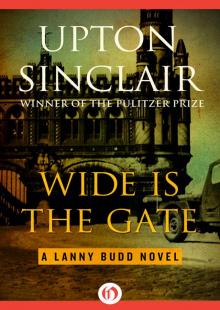 Wide Is the Gate
Wide Is the Gate The Return of Lanny Budd
The Return of Lanny Budd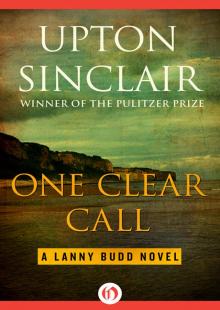 One Clear Call I
One Clear Call I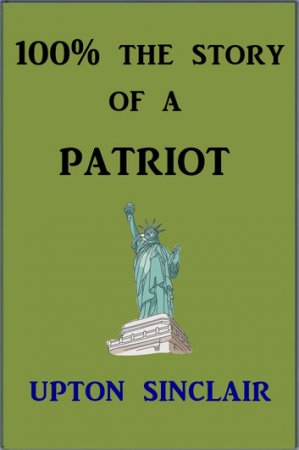 100%: the Story of a Patriot
100%: the Story of a Patriot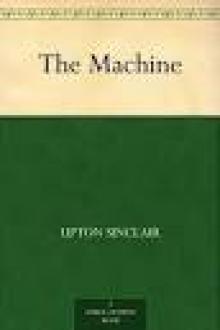 The Machine
The Machine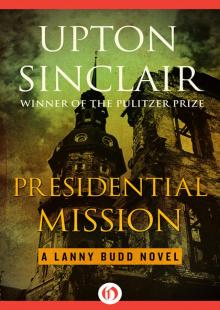 Presidential Mission
Presidential Mission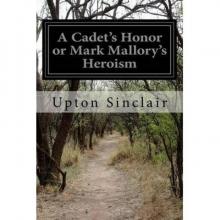 A Cadet's Honor: Mark Mallory's Heroism
A Cadet's Honor: Mark Mallory's Heroism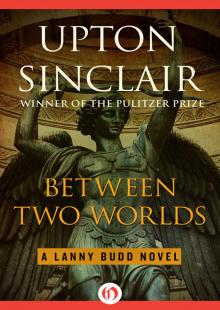 Between Two Worlds
Between Two Worlds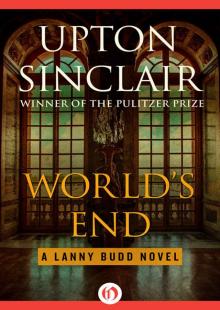 World's End (The Lanny Budd Novels)
World's End (The Lanny Budd Novels)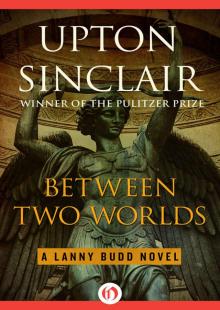 Between Two Worlds (The Lanny Budd Novels)
Between Two Worlds (The Lanny Budd Novels)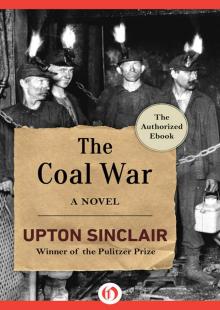 The Coal War
The Coal War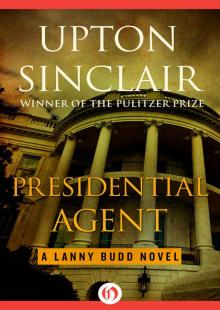 Presidential Agent (The Lanny Budd Novels)
Presidential Agent (The Lanny Budd Novels)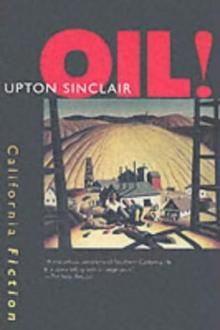 Oil (filmed as There Will Be Blood)
Oil (filmed as There Will Be Blood)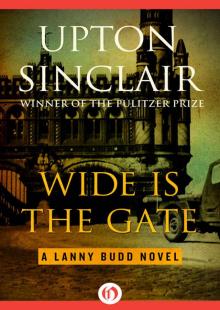 Wide Is the Gate (The Lanny Budd Novels)
Wide Is the Gate (The Lanny Budd Novels)